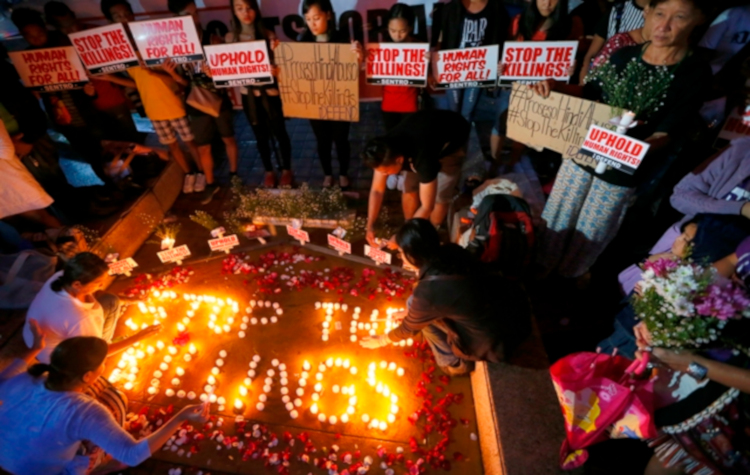
(Bangkok, 21 June 2019) – The Asian Forum for Human Rights and Development (FORUM-ASIA) and Front Line Defenders strongly condemn the unabated killings and violence against activists, human rights defenders, and civil society organisations in the Philippines, particularly those of Leonides ‘Dennis’ Suquena, Ryan Hubilla, Nelly Bagasa, Nonoy Palma, and Neptali Morada earlier this month. FORUM-ASIA and Front Line Defenders urge the Government of the Philippines to immediately conduct a transparent investigation into these killings, to take genuine steps towards addressing the continuous violence, and to provide justice for all victims.
On 2 June, labour union organiser, veteran trade union organiser and vice chairperson of the Partido Manggagawa (PM) Cavite chapter, Leonides ‘Dennis’ Sequena, was gunned down by unidentified men in the province of Cavite. Ryan Hubilla and Nelly Bagasa, members of the human rights network Karapatan, were killed on 15 June. Hubilla, along with other Karapatan members had earlier raised concerns about being subjected to state surveillance. On the same day, Nonoy Palma, a member of a farmers’ group was killed in Bukidnon province. Two days later on 17 June, the former campaign leader of the leftist group Bayan, Neptali Morada, was gunned down in the Bicol region, also by unidentified individuals.
The ongoing ‘war on drugs’, which has resulted in an estimated 27,000 extrajudicial killings, has further exacerbated the culture of violence in the country. Human rights groups have long expressed concern that tactics used in the ‘war on drugs’ are now being used to target political activists, human rights defenders and other critics of the Government, in efforts to instil fear and stifle dissent.
These killings continue to occur within an environment of impunity, where both police officers and civilians overwhelmingly escape accountability for extrajudicial killings. The normalisation of the violence has gone so far that even the former police chief responsible for the operationalisation of the ‘war on drugs’, Ronald ‘Bato’ dela Rosa, will take his seat as an elected Senator in July 2019.[1] Of the killings against activists and ordinary individuals within recent years, only a few have led to criminal prosecutions or convictions.
Civil society organisations have also raised concerns over the heightened use of red-tagging and terrorist-tagging. In such cases, individuals appear, with their name and organisational affiliation, on lists drawn up by the security sector. Having your name appear on such a list basically declares you to be a legitimate target for harassment and violence from both state and non-state actors. Many of these killings have been conducted under the cover of the country’s counter-insurgency programme, with very little transparency. Security sector officials behind these actions continue to face little to no accountability for their actions.
FORUM-ASIA and Front Line Defenders call on the Government of the Philippines to address the rise in the killings, including through acknowledging its role in the continuous violence, taking steps to provide protection, and ensuring accountability. Ahead of the 41st session of the UN Human Rights Council, FORUM-ASIA and Front Line Defenders reiterate their call to States to actively support a resolution establishing an independent, international investigation into the extrajudicial killings in the ‘war on drugs’, and mandating the Office of the High Commissioner for Human Rights to monitor and report on the situation in the country, including the targeting of activists, human rights defenders and civil society.
**
For a PDF version of this statement, please click here.
For more information, please contact:
– East Asia and ASEAN Programme, FORUM-ASIA, [email protected]
[1] https://www.theguardian.com/world/2019/may/14/philippines-election-duterte-allies-on-course-for-senate-victories



